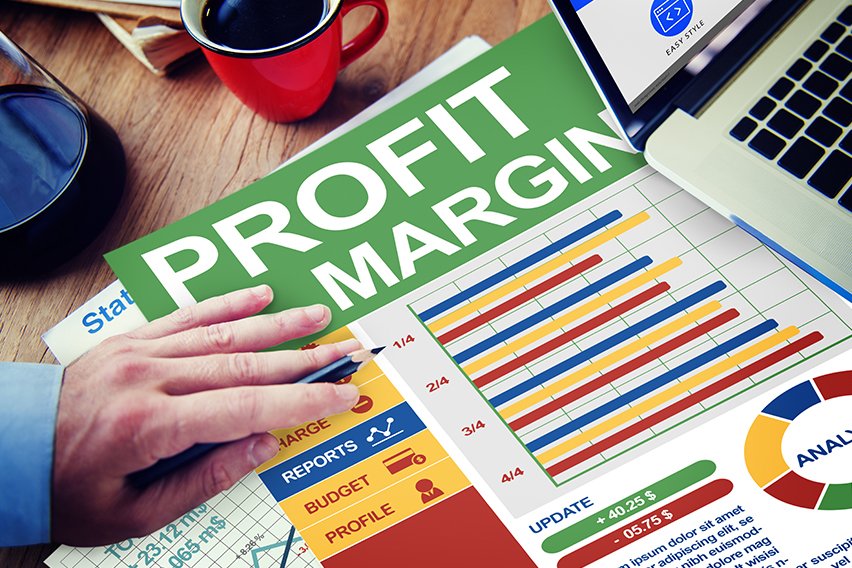5 Best Merchant Account Providers in The UK

One of the most important parts of doing business is processing transactions. Customers are able to make purchases in a number of ways. They can come to your storefront and pay in cash. They may debit cards or credit cards. If you have an online option, there are countless ways to accept payments. As such, it’s important to have a great merchant account provider.
Merchant account providers are integral to a smooth payments process. If you are looking for a new merchant account provider, you’ve come to the right place. We’re looking at the 5 best merchant account providers in the UK. Keep reading to find out more!
Here’s What We’ll Cover:
What Is a Merchant Account Provider?
What to Look For In a Provider
The 5 Best Merchant Account Providers in the UK
What Is a Merchant Account?
A merchant account is a business bank account. It allows a business to accept and process various forms of payment. This includes:
- Debit card payments
- Credit card payments
- Accept Payments Online
- Contactless payments
- Mobile payments
Without a merchant account, businesses would be forced to accept cash only. This can be a problem, especially in today’s connected marketplace.
Merchant accounts require businesses to partner with a merchant acquiring bank. This bank is the entity that facilitates all communications in the electronic payments process.

What Is a Merchant Account Provider?
As the name implies, this is a company that provides businesses with a merchant account. They help your business accept all forms of electronic payment. Without them, it would be hard to do business in today’s world. Because business has become so dependent upon electronic payments, there are many providers to choose from.
What to Look For In a Provider
If your business is looking for provider services, you’ll have to be on the lookout for a few key things. All of these areas should be examined thoroughly. If they aren’t paid attention to, you may not get the services that your business needs.
Payment Options
Payment options are one of the biggest concerns you should have for your business. With the evolution of technology over time, many payment methods are now available in addition to cash. Many service providers allow your customers to pay in a number of ways. However, they may not all match up. When looking at providers, ask yourself these questions:
- Does this provider allow for all payment types? This refers to being able to take debit cards, credit cards, and other electronic payments.
- Do they have an option for online payments? There are many online businesses today. As such, online transactions are a must, especially for an internet merchant.
- Can I use hardware for phone payments? To take payments over the phone using a card, you may need special card reader hardware. Does the merchant services provider have this for your business?
- Do they have hardware for in-person payments? This can include card readers, registers, and tablets. There are many options available, including a mobile card reader offered by some companies. It depends on what the business offers, and what your business needs.
All of these are important for your business. Business owners will need to know what type of business they plan on doing to answer these questions. Understanding your day-to-day operations can make a large impact on what company you choose to use.
Cards Accepted
This category is entirely separate from the payment options category. That’s because the cards accepted by a company have nothing to do with how payments are taken. When you’re running a business, you want to increase your chances of taking every credit card transaction. Missed transactions are missed opportunities to make more money. Not all merchant service providers use every credit card network.
Try to find a merchant services provider that allows you to accept the following cards:
- Visa
- Mastercard
- Diners Club
- American Express
These are the 4 most popular options in the UK at this point in time.
Overall Cost and Fees
When you’re running a small business, expenses make a difference in your overall revenue. Choosing a merchant account provider comes with choosing the right fees. There are a number of different costs that you have to be aware of, but the following are the most common merchant account fees:
- Transaction Fee: Transaction rates are something to pay close attention to. Some providers will charge in bulk, while others have a cost per transaction. Knowing your transaction volumes is key in assessing transaction fees.
- Monthly Service Fee: Many providers charge a fee every month. This fee can be large or small, depending on the provider, as well as your business.
- Interchange Fee: Interchange fees are also known as credit card processing fees. This fee is paid between banks for the acceptance of card-based transactions.
- Chargeback Fee: Some providers will charge you extra if a card is charged back.
- Compliance Fees: Every merchant account provider is required to follow certain compliance standards. As such they have to keep up with these standards. Compliance fees are fairly standard among the industry.
- Gateway Fee: Some merchant account providers charge a gateway fee for processing transaction fees.
- Setup Fee: Depending on how large your company is, some setup may be required. There may be a setup fee required to get things going.
As you can see, there are plenty of fees to be aware of. Knowing how much your business will be spending on fees per month can make or break your business’s bank account. Accounting is everything when it comes to any business, no matter the size. As such, your services provider should come with transparent pricing.
In addition to fees, you also have to worry about minimum terms. Some companies will require a contract with a minimum term. Some of these may be an annual contract, while some may be longer. This ties you to your provider for a specific amount of time. It’s important to keep that in mind.
The 5 Best Merchant Account Providers in the UK
If you’re looking for a new merchant account provider, you’re in luck. We’ve taken a look at the 5 best merchant account providers for businesses in the UK. Take a look at our top picks.
1. Paymentsense
Paymentsense is the best merchant account provider in the UK on paper. They have clear fees outlined, and they’re very low compared to the other providers on this list. Paymentsense has been around since 2010, and it shows. They are fully prepared to help your business handle customers face to face and online.
Payment Options:
This provider allows for in-person payments and online payments. They also include free physical terminals for your business location. These terminals can be used for in-person and over the phone payments. Thankfully, they include virtual terminals and templates for online businesses as well.
Cards Accepted:
Paymentsense offers access to all kinds of card payments. They include all of the options below for cards accepted:
- Visa
- Mastercard
- Discover Card
- American Express
- JCB
- Diners Club
- Union Pay
- Contactless payments
- Apple Pay
- Samsung Pay
- Google Pay
Fees:
Paymentsense’s fees are the lowest you can get for a merchant account provider. They start at £9.95 per month. This is for businesses that have card turnover of less than £50,000 per year. However, their rates aren’t published. This means that they’re probably willing to give a discount to new clients, which is always good.
In addition to their monthly fees, they also have card transaction fees. The fees are 1.30% per transaction, plus £0.15 per transaction. Paymentsense comes with an 18-month minimum term. However, they have no setup fee, and they don’t charge an additional fee for ecommerce transactions.
Overall, Paymentsense is an excellent option for most small businesses. They do have some complaints, however. Some customers have complained online about hidden fees and charges. These are to be taken lightly, however, as the plans are different for each customer.
2. Barclaycard
Transaction rates for Barclaycard are hard to find online. They aren’t a company that likes to advertise these things, but they are competitively priced. When you do some digging, you can find them pretty easily. They’re top rated because they have such rave reviews, and very good rates. Check all of their information out below.
Payment Options:
Barclaycard allows businesses to accept in-person and online payments. The company also has physical terminals, but the terminals are £29.00 each. They allow payments to be taken at tills and on mobile devices.
Cards Accepted:
Barclaycard is more limited in terms of the cards they accept when compared to Paymentsense. They accept all of the major credit cards and debit cards. However, they do not accept mobile payments or digital wallets. This means that you won’t be able to assist customers that use Apple Pay, Google Pay, or Samsung Pay.
Fees:
This service provider has fees for a few things. They require setup fees, which total to £150. They also have monthly fees that range anywhere from £15 to £25, depending on the hardware you use. This may seem high, but Barclaycard shines when it comes to transaction fees. For all card transactions, Barclaycard charges 1.25% each. This is considerably lower than Paymentsense, considering there is no added fee. This however, is only when using their contracted service.
When using Barclaycard Anywhere, there are no monthly fees. However, the cost per transaction is increased to 2.6% each. It is also only meant for in-person purchases. It cannot be used online. The card reader that comes with this option is £29.
Barclaycard is better when you opt for a contracted plan. Under contract, you save a considerable amount of money on transactions, making it an excellent option.
3. Shopify
Shopify is likely known for their ecommerce services. They were a large player in the ecommerce world, offering services and a virtual terminal. As of late, though, they’ve been making an impact on in-person businesses as well. They now offer a range of physical equipment for businesses, making them a great option for more than just ecommerce.
Payment Options:
The company has a stronghold on the e-commerce side of things. Their online platform and tools are strong. However, their physical options are excellent, as well. They have card readers for tablets and phones, as well as full registers and tills. The equipment can be a bit pricey, but it is made for the hospitality trades. It’s strong, and meant for hard use. Shopify has all of the bases covered for online businesses and storefronts.
Cards Accepted:
Shopify’s accepted cards are a bit limited, as well. This can be frustrating, depending on your crowd. However, they have the major credit and debit cards covered. Shopify is currently accepting payments from Visa, Mastercard, and American Express. They also accept payments from Apple Pay and Android Pay. This covers a large amount of the customers you may see on an average day.
Fees:
The fees for Shopify are clear, but they can be difficult to understand. Being solely an online company for quite some time, their fees are different for in-person and online companies.
For online businesses, the transaction fees are higher than they are for physical storefronts. Fees are 1.6% and £0.20 per transaction. This is a bit more than for a physical business. In-person transactions are 1.5% each, with no added fee on top.
There are no setup fees or additional ecommerce fees, thankfully. The minimum monthly fee for Shopify is £29 to £299 a month, depending on the size of your business. The real initial cost comes from their physical hardware, though. Hardware ranges from £59 to £379 per piece. This can add up in larger businesses, quick. Make sure you know what kind of hardware works best for your business.
If you’re running an online business, you probably already know about Shopify. However, if you’re running a storefront, Shopify may be cheaper for you at this point. Also, a great feature offered by Shopify that you can’t get elsewhere is inventory management. Because they were online only for a long period of time, this is built into all of their software. It’s an excellent tool for any business.

4. Take Payments
Their name says it all – they want to help you take payments! Take Payments is a great merchant services provider in the UK. The biggest plus for Take Payments is their business structure. Customer service is provided in-person to their customers. This can make troubleshooting a breeze. It’s something entirely unique to the company, as well. It isn’t offered by anyone else.
Payment Options:
Take Payments provides options for taking payments online and in-person. They have terminals that allow you to take payments over the phone or by mail. They also provide register hardware for payments taken at tills. The best part about these pieces of hardware? They’re entirely free. Take Payments is an excellent service to have on your side.
Cards Accepted:
Take Payments, as the name implies, wants you to take all kinds of payments. They accept all major credit cards and debit cards in the UK. They don’t have any information about taking mobile payments from digital wallets, but we’d bet it’s available. Additionally, the company allows businesses to take payments from Maestro. These prepaid debit cards aren’t accepted everywhere, making Take Payments a unique service provider yet again.
Fees:
When you sign up with Take Payments, you have to sign a contract with a minimum term of 12 months. However, they’ve got no setup fees, and their monthly fee is only £20.00. Impressively, Take Payments offers a competitive cost per transaction, too. The company charges 1.5% plus £0.01 per payment taken. This is very competitive with the other options at the top of this list.
Another big advantage to using Take Payments is their hardware cost. It’s free, meaning that you can have hardware for your business at no cost. Hardware provides a polished, professional feeling. Getting it for free just feels good.
Take Payments offers in-person customer support teams in addition to a virtual customer service team. For people just setting up their businesses, this can make a world of difference. Consider Take Payments if you want a no-hassle setup and continued support.
5. myPOS
Last on the list we have myPOS. We like myPOS simply for in-person businesses. That’s the best way to get a good deal on their services. Online businesses would be better with any other option on our list.
Payment Options:
myPOS allows customers to take payments in-person or online. However, taking online payments through the platform may not be a business’s best option. We’ll cover that under the fees section, though. The company also offers a range of hardware that can be used in your store. These have a wide range of costs, as well, so it’s a bit up in the air. It really depends on what your business needs to run.
Cards Accepted:
This service provider allows businesses to take payments from all major debit and credit cards. It also provides hardware that’s able to take contactless payments of all kinds. This means that all digital wallets can be accommodated, meaning you’ll never have to turn a payment away. This is a huge plus for myPOS.
Fees:
When it comes to fees, you’d think that the online portion should be a bit cheaper, right? myPOS doesn’t think that way, unfortunately. When you use them as your merchant account provider, you’ll be charged 2.25% for online transactions. This is a lot more than what they charge for in-person transactions, at 1.75%.
That being said, the service charges no monthly fees. It also doesn’t charge any setup fees. That’s a lot to be liked on its own. They also have no minimum term. The last thing to think about with myPOS are the hardware options. The cheapest option is £29, which is comparable to other options on this list. However, their top tier option is £1,249. This is a very high cost, and can be tough to swallow.
When you choose myPOS, you need to know your exact business needs. If you don’t know what you need, you may end up overpaying. There’s a lot to like about myPOS, but it should be exclusively used by physical storefronts.
Key Takeaways
When you’re running a business, being able to take any payment that comes your way is important. No business owner wants to miss a sale. Of course, choosing the right merchant account provider can influence that. Any of the 5 options on this list is a great place to start. Some are tailored more towards ecommerce, while others are better as in-person systems. Regardless of which you choose, make sure to make the most informed decision. Knowing your business is the best way to do that.
If you’re looking for more articles like this, check out our resource hub! We have plenty of helpful information for business owners and industry enthusiasts. Take a look at it today!
RELATED ARTICLES

 A Guide to Filing a Micro-Entity Balance Sheet
A Guide to Filing a Micro-Entity Balance Sheet How to Calculate Profit Margin: A Small Business Guide
How to Calculate Profit Margin: A Small Business Guide What Is the Profitability Index? Definition & Calculation
What Is the Profitability Index? Definition & Calculation What Is an Asset? Definition & Types
What Is an Asset? Definition & Types What Is a Debenture? Definition & Purpose
What Is a Debenture? Definition & Purpose What Is Cash Flow? Definition, Importance & Examples
What Is Cash Flow? Definition, Importance & Examples